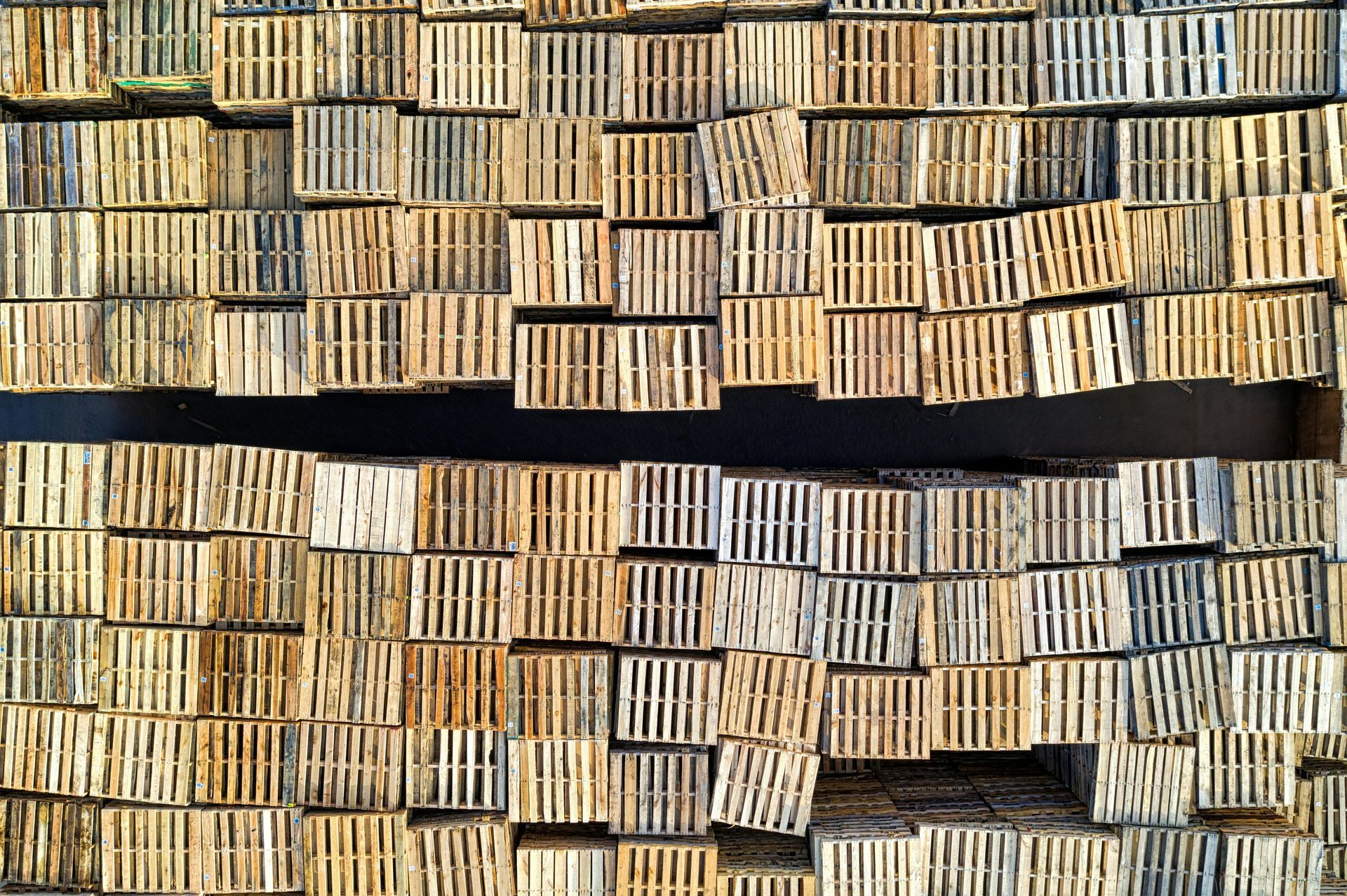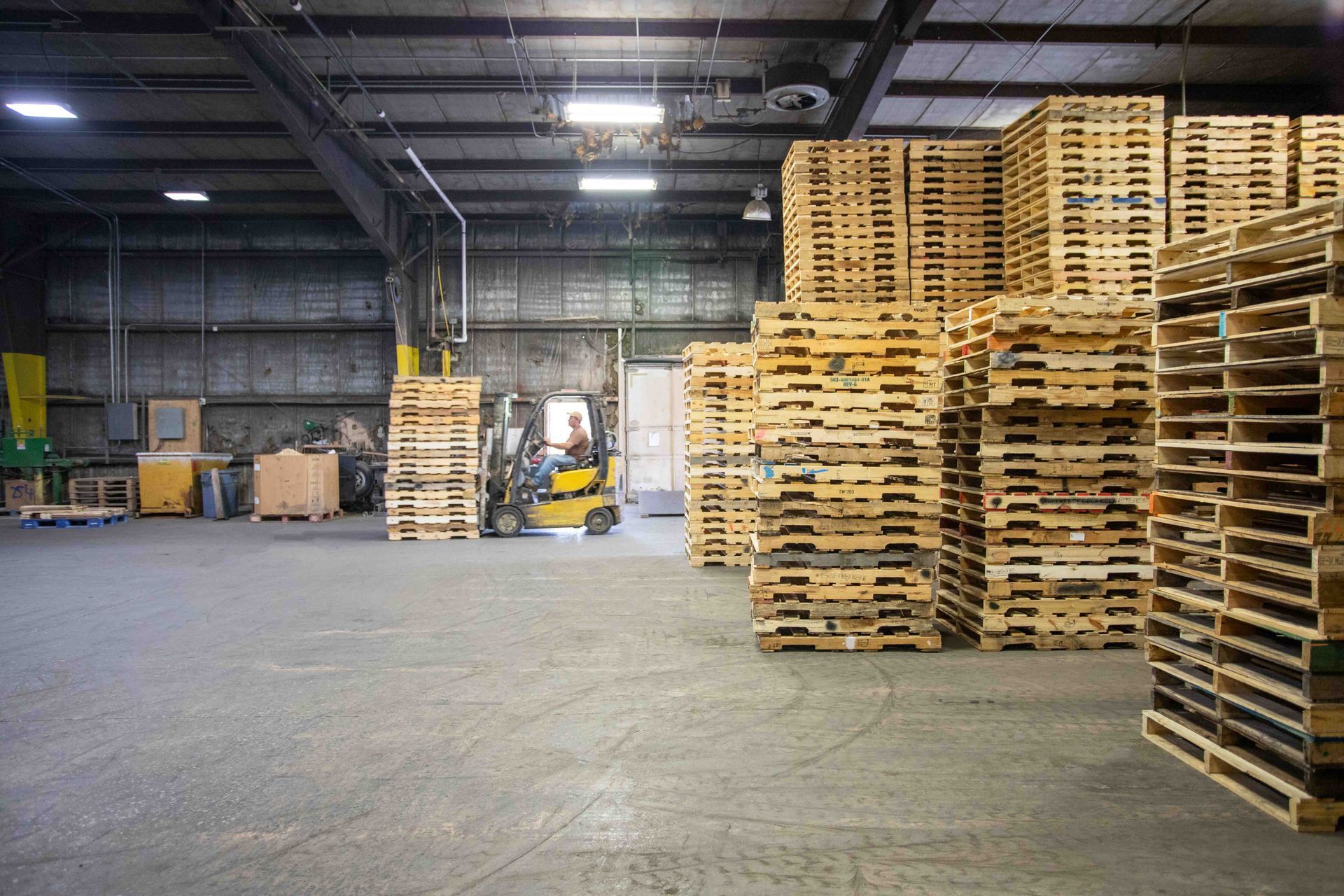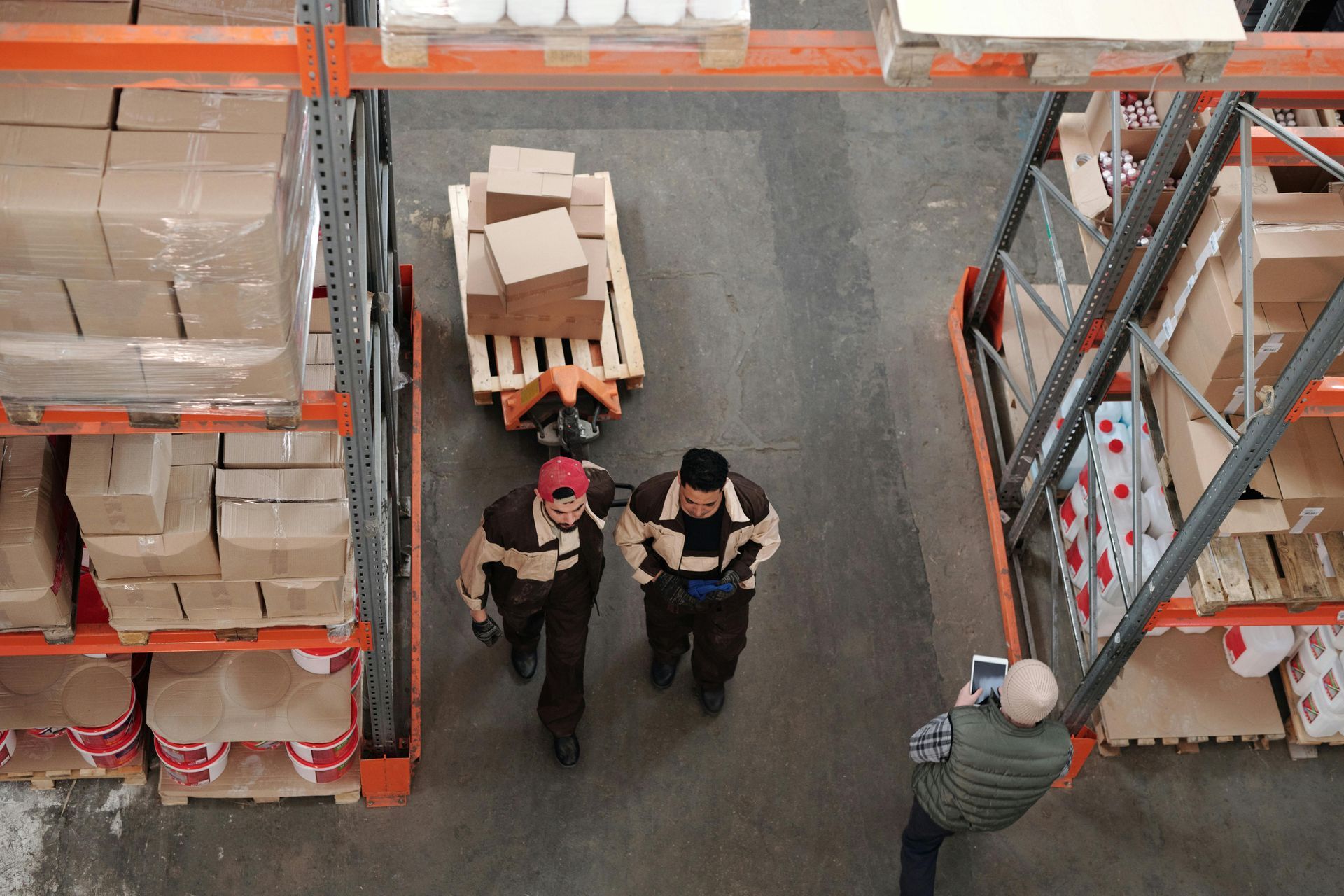What Happens to a Recycled Wooden Pallet?
In today's eco-conscious world, more companies are looking to minimize waste and maximize sustainability in their supply chains.
One of the simplest yet most impactful ways to do this is by recycling wooden pallets. If your business frequently uses pallets for shipping or storage, you may have wondered:
What actually happens to a wooden pallet once it's recycled?
This article walks through the whole journey of a recycled pallet—from pickup to repurposing—so you can better understand how the process supports both the environment and your bottom line.
Step 1: Pallet Collection
The journey of a recycled wooden pallet begins with collection.
Businesses that work with a pallet recycling provider typically accumulate used, broken, or unwanted pallets over time. These may come from warehouses, distribution centers, manufacturing plants, or retailers.
Collected pallets are gathered through scheduled routes or on-demand services. Whether slightly worn or heavily damaged, they're transported to a facility for inspection and sorting.
Step 2: Inspection and Sorting
Once the pallets arrive at the recycling facility, they are carefully inspected and sorted based on their condition and type, as well as for several key features.
- Structural integrity
- Presence of mold, contamination, or infestation
- Type of wood (hardwood vs. softwood)
- Nail and board placement
Pallets that are still in good condition may be cleaned, graded, and returned to inventory. Damaged pallets, depending on their salvageability, are sorted for either repair or material recovery.
Step 3: Pallet Repair and Reconditioning
Many wooden pallets don't need to be discarded—they need some TLC.
In this stage, usable components from broken pallets are reclaimed and used to repair other pallets. This process often involves:
- Replacing broken boards or stringers
- Removing bent or damaged nails
- Sanding rough surfaces
- Re-nailing and reinforcing weak spots
Repaired pallets are then tested for strength and durability to meet industry standards. Once approved, they're reintroduced into circulation and ready for reuse in commercial or industrial settings.
This type of reconditioning extends the life of a pallet several times over, saving businesses money and reducing the demand for virgin lumber.
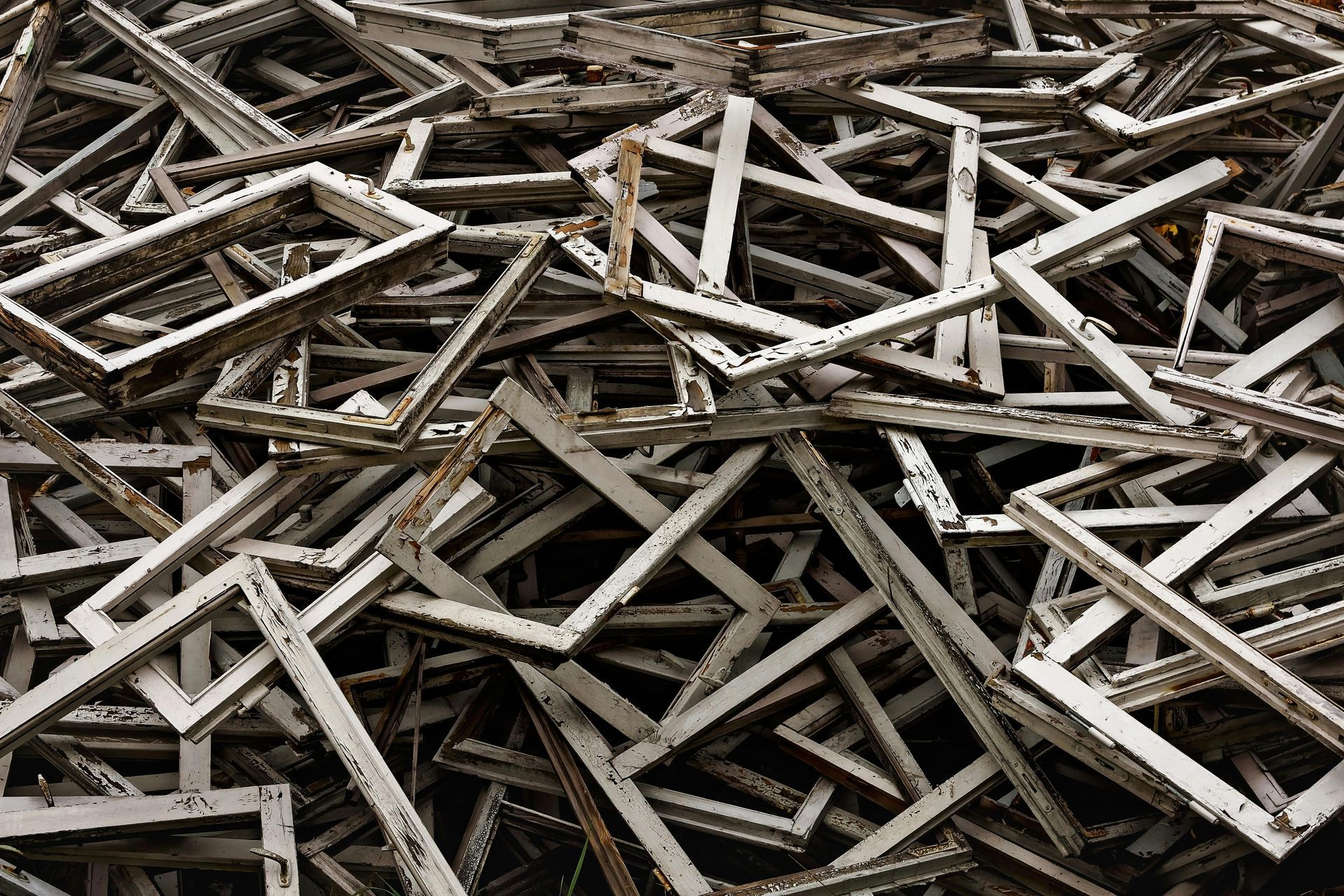
Step 4: Material Recovery and Repurposing
If a pallet's damage is too extensive for repairs, that doesn't mean it goes to waste; the wood is broken down and repurposed for other uses.
- Mulch and landscaping material – Chipped pallet wood makes an excellent ground cover for gardens, trails, and public spaces.
- Wood pellets and fuel – Ground wood from pallets can become biomass fuel for industrial heating systems.
- Animal bedding – Finely shredded wood can be sanitized and used for farm animals.
- Upcycled furniture or DIY projects – Artisans or hobbyists can turn it into rustic furniture, shelving, or home décor.
Any byproducts, such as nails or metal fasteners, are also recycled through proper channels to minimize waste.
Step 5: Resale and Redistribution
Once pallets have been repaired or refurbished, they go back into inventory for sale or rental. Businesses that buy recycled pallets benefit in several ways.
- Lower costs compared to new pallets
- Reliable performance for most shipping needs
- Sustainable practices that support green initiatives
Both standard sizes and custom pallet options are typically available to meet a range of operational needs.
Environmental Benefits of Pallet Recycling
Recycling pallets isn't just about saving money—it's also about protecting our environment.
- Reduces landfill waste – Millions of pallets end up in landfills every year. Recycling prevents this.
- Conserves natural resources – Fewer trees need to be harvested for new pallets when old ones are reused or repaired.
- Lowers carbon emissions—The energy required to recycle or repair pallets is significantly lower than that required to produce new ones from raw materials.
Working with a reliable pallet recycling company helps businesses contribute to a more circular economy where materials are reused instead of discarded.
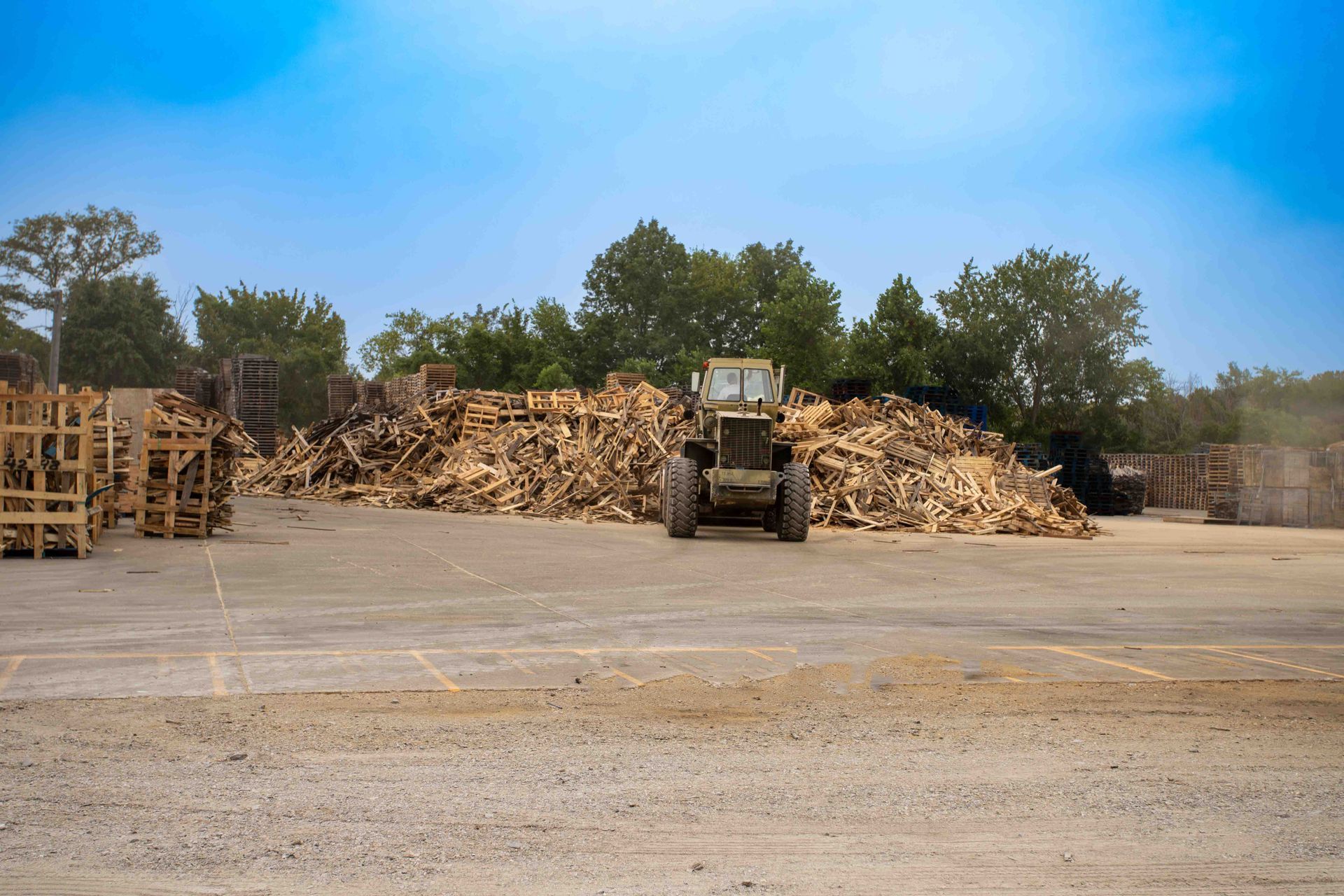
Work With Global ICB
The next time you look at a worn-out wooden pallet, remember: its story isn't over.
Through recycling, pallets receive new life—whether they're repaired and reused, broken down into raw materials, or transformed into something entirely new.
At Global ICB, we're proud to offer full-service pallet recycling solutions that allow businesses to operate more sustainably without sacrificing efficiency or reliability.
Contact us today to learn more about our pickup services, refurbished pallet sales, and custom recycling programs.
